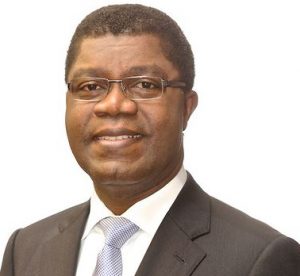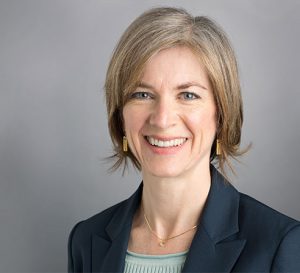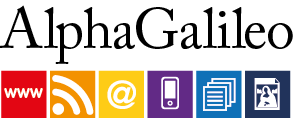WCSJ2017 Organizers Announce Headliners, Highlight Call for Proposals
MANCHESTER, UK (JULY 25, 2016) — African science-development activist Thierry Zomahoun and pioneering U.S. biologist Jennifer Doudna will be among the keynote speakers at the 10th World Conference of Science Journalists (WCSJ2017), to be held in San Francisco, California, Oct. 26-30, 2017, organizers announced today.
In a media briefing at the EuroScience Open Forum (ESOF2016), WCSJ2017 Program Chair Deborah Blum, director of Knight Science Journalism at the Massachusetts Institute of Technology, revealed the two headliners and urged science journalists to submit proposals for conference sessions on topics of international concern to science journalists—from climate, environment and infectious disease to media manipulation and access to science.
The WCSJ2017 Program Committee, which includes journalists from Asia, Africa, Europe and the Americas, will accept session proposals through Sept. 30.
Ron Winslow, co-chair of the United States-based Organizing Committee, announced that sponsorships covering approximately one-third of the US$2.5 million conference budget have been secured. Johnson & Johnson Innovation has signed on as WCSJ2017’s Diamond Sponsor. Sponsorships will be accepted through August 2017, Winslow said. Winslow is deputy bureau chief for health and science at the Wall Street Journal.

Thierry Zomahoun
Thierry Zomahoun is president and chief executive officer of the Rwanda-based African Institute for Mathematical Sciences (AIMS), which is developing a network of centers offering advanced training and research opportunities to top students in science and mathematics across Africa. Through AIMS’s programs and his public advocacy, Zomahoun hopes to change perceptions about the potential of Africa’s youth and demonstrate the continent’s capability to be a global hub for science.
In 2013, he founded the AIMS Next Einstein Forum, bringing together leading thinkers in science, policy, industry and civil society in Africa to leverage science to solve global challenges. A native of Benin, Zomahoun managed multiple non-governmental organizations before becoming AIMS’s chief executive in 2011.

Jennifer Doudna (photo by Sam Willard)
Jennifer Doudna is a professor of chemistry and of molecular and cellular biology at the University of California, Berkeley. She was thrust into the international spotlight after she and Emanuelle Charpentier, now a professor at the Max Planck Institute for Infection Biology in Berlin, described their use of a bacterial system of “molecular scissors,” CRISPR-Cas9, to edit a genome.
Research using CRISPR for gene editing immediately took off, spurring patent disputes, the launch of new companies and controversies over the ethical use of the technology. Doudna has been at the forefront of the development of the technology and ethics debates. Elected to the U.S. National Academy of Sciences and Institute of Medicine and as a Foreign Member of the Royal Society, she is the recipient of a large number of prizes for biomedical research.
“Thierry Zomahoun’s work to accelerate Africa’s development by building a global science hub, and Jennifer Doudna’s breathtaking science and commitment to ethical uses of science, are excellent expressions of our conference theme, ‘Bridging Science and Societies,’” said Blum. “Science journalists play a central role in bringing science to readers worldwide so that they can leverage knowledge for public good and hold their institutions accountable. We are thrilled that these pioneers will be able to join us at the next World Conference.”
San Francisco was chosen as the site of WCSJ2017 in 2015 by the board of the World Federation of Science Journalists, an organization made up of 51 membership associations of science journalists around the world. WFSJ’s members hold a global conference every other year and will meet in the U.S. for the first time in 2017. The conference will be hosted by the National Association of Science Writers (NASW), in partnership with the Council for the Advancement of Science Writing and two host universities, the Berkeley and San Francisco campuses of the University of California.
Among the features of the 2017 conference will be an expanded science program and special training opportunities for students as well as Latin American and Caribbean science journalists. More than 1,200 journalists are expected to immerse themselves in Bay Area science and enjoy events at the university campuses, California Academy of Sciences and Exploratorium as well as a public science event organized by the Bay Area Science Festival.
Fundraising to support conference production as well as speaker and attendee travel is being led by CASW and WFSJ. Winslow said the organizers are recruiting support from foundations, corporations and science and journalism organizations and have received commitments totaling $830,000 to date. Applications for travel fellowships for developing-country journalists will be taken beginning in January 2017, and registration will open in May 2017.
###
The WCSJ2017 Organizing Committee thanks AlphaGalileo for presenting a media reception following the briefing.
ABOUT THE CONFERENCE PARTNERS
CASW: Founded in 1959, the Council for the Advancement of Science Writing is a panel of distinguished journalists, science communication specialists, and scientists committed to improving the quality and quantity of science news reaching the public. CASW has joined with WFSJ to raise funds to support travel to WCSJ2017 for developing-country journalists, as well as hospitality and conference program expenses.
NASW: Founded in 1934, the National Association of Science Writers is an association of more than 2,000 members chartered to “foster the dissemination of accurate information through all media normally devoted to informing the public.” NASW’s programs improve the craft of science writing, fight for the free flow of science news, and honor excellence in science writing.
WFSJ: The Montréal-based World Federation of Science Journalists connects science journalists in more than 50 associations around the world through conferences, competitions, and networking, and encourages strong, critical coverage of issues in science and technology, environment, health and medicine, agriculture, and related fields. Current programs help journalists worldwide learn about infectious diseases, including Ebola and hepatitis C. WFSJ offers an online science journalism course in 10 languages.
UCSF and UC Berkeley: UC San Francisco is the leading university in the U.S. exclusively focused on health. UCSF is dedicated to advanced biomedical research, graduate-level education in the life sciences and health professions, and excellence in patient care. UC Berkeley is the flagship of the University of California system. Its undergraduate program ranks third overall among the world’s universities in the latest U.S. News & World Report rankings, while its graduate research programs uniformly rank among the best in the world. Combined, current UCSF and UC Berkeley faculty have earned more than 25 Nobel Prizes.
MEDIA CONTACTS
Rosalind Reid, executive director, Council for the Advancement of Science Writing ros@casw.org
Tinsley Davis, executive director, National Association of Science Writers director@nasw.org
Damien Chalaud, executive director, World Federation of Science Journalists dchalaud@wfsj.org

